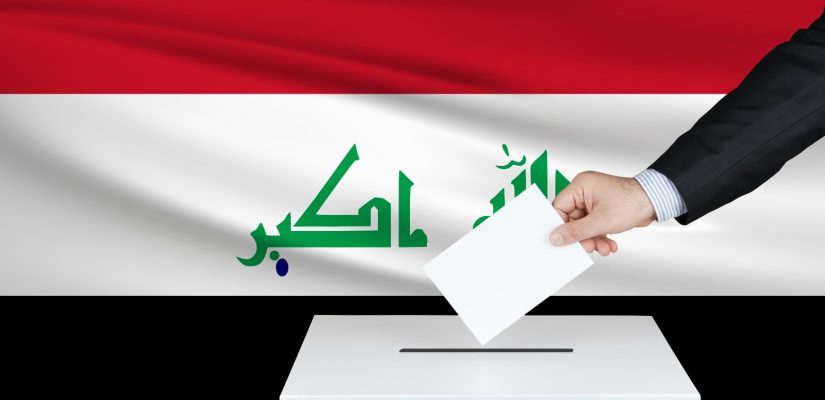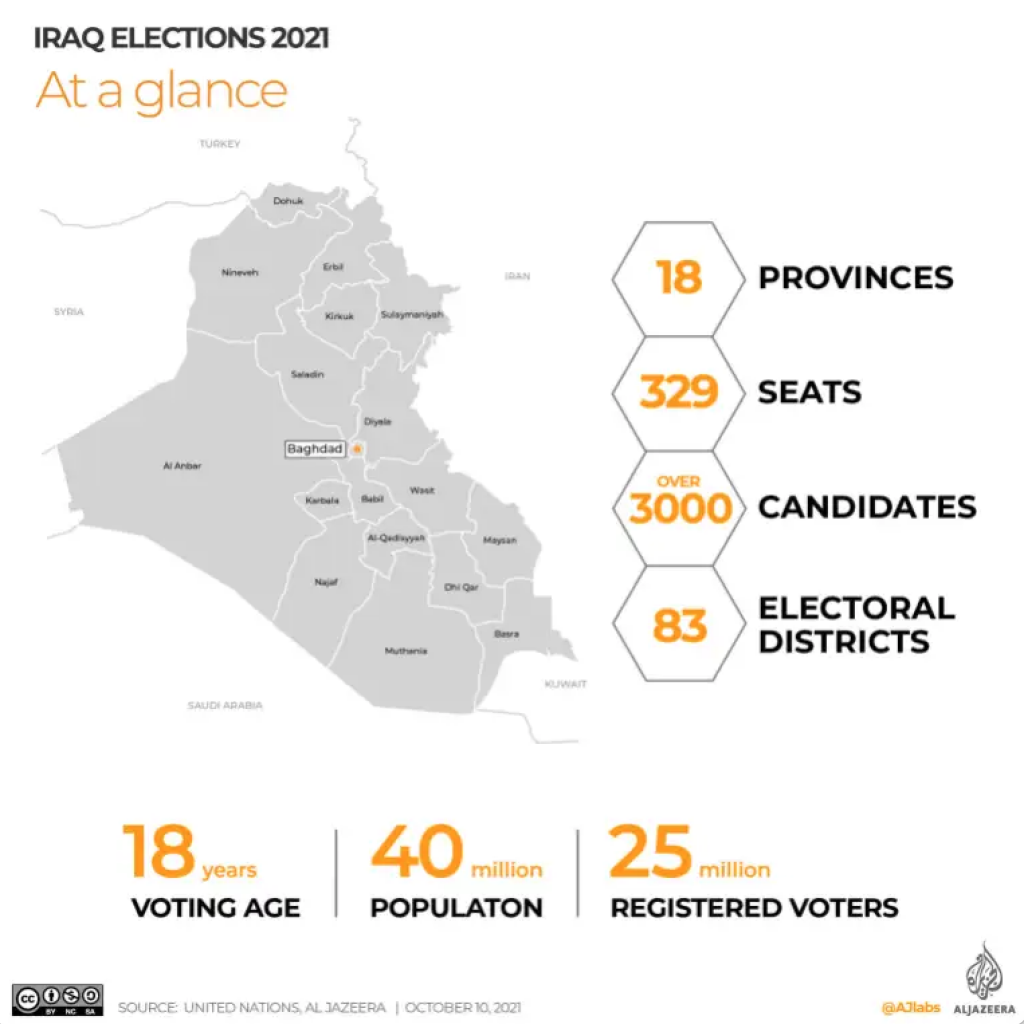
Individual security and old politics: will something change with the Iraq elections? | (dot)security

(dot)securty | A space by JACOPO FRANCESCHINI
On 10th October 2021, 25 million Iraqi citizens are going to vote for a new government. The recent elections were sparked after the massive popular demonstration movements that shook Iraq in 2019 and forced Prime Minister Adil Abdul-Mahdi to resign in May 2020. Protests were ignited by the high corruption of governmental institutions while basic infrastructures and services were not granted to the population. The Corona pandemic worsens the situation, showing the lack of healthcare infrastructure and aggravates the country’s unemployment rate.
The lack of previous government guarantees for basic and individual daily security to its citizens might represent a game-changer in the new elections. Another element of potential change in the political system is represented by a new electoral law, which allows voters to choose candidates above parties directly. This new mechanism might advantage new parties and candidates who emerged in the last years of protests and not belonging to the “old” political system. All these elements could bring to a new electoral outcome for Iraq where preferences would turn to those candidates focusing on establishing daily life security for their citizens instead of focusing on ideological, ethnic, and religious political belonging. Nevertheless, old parties and candidates have received better funding and visibility during the electoral campaign, which might result in no change of the current political status quo of Iraq.
Iraq elections result will be highly influenced by Iraqi younger voters and their participation in the election. Disillusionment and little hope for a safe future and careers in Iraq could push many young people to boycott elections. Despite being the results still uncertain, whoever is going to win the polls should put more stress and commitment to protecting the individual security of Iraqi citizens, who are vehemently asking for it after almost 20 years of war, turmoil, and uncertainty in the country.
